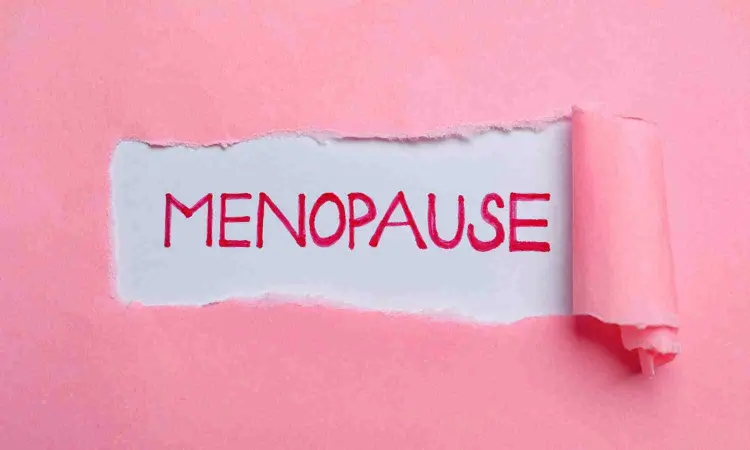- Home
- Medical news & Guidelines
- Anesthesiology
- Cardiology and CTVS
- Critical Care
- Dentistry
- Dermatology
- Diabetes and Endocrinology
- ENT
- Gastroenterology
- Medicine
- Nephrology
- Neurology
- Obstretics-Gynaecology
- Oncology
- Ophthalmology
- Orthopaedics
- Pediatrics-Neonatology
- Psychiatry
- Pulmonology
- Radiology
- Surgery
- Urology
- Laboratory Medicine
- Diet
- Nursing
- Paramedical
- Physiotherapy
- Health news
- Fact Check
- Bone Health Fact Check
- Brain Health Fact Check
- Cancer Related Fact Check
- Child Care Fact Check
- Dental and oral health fact check
- Diabetes and metabolic health fact check
- Diet and Nutrition Fact Check
- Eye and ENT Care Fact Check
- Fitness fact check
- Gut health fact check
- Heart health fact check
- Kidney health fact check
- Medical education fact check
- Men's health fact check
- Respiratory fact check
- Skin and hair care fact check
- Vaccine and Immunization fact check
- Women's health fact check
- AYUSH
- State News
- Andaman and Nicobar Islands
- Andhra Pradesh
- Arunachal Pradesh
- Assam
- Bihar
- Chandigarh
- Chattisgarh
- Dadra and Nagar Haveli
- Daman and Diu
- Delhi
- Goa
- Gujarat
- Haryana
- Himachal Pradesh
- Jammu & Kashmir
- Jharkhand
- Karnataka
- Kerala
- Ladakh
- Lakshadweep
- Madhya Pradesh
- Maharashtra
- Manipur
- Meghalaya
- Mizoram
- Nagaland
- Odisha
- Puducherry
- Punjab
- Rajasthan
- Sikkim
- Tamil Nadu
- Telangana
- Tripura
- Uttar Pradesh
- Uttrakhand
- West Bengal
- Medical Education
- Industry
Study reveals CV Risk Profiles of Different Hormone Therapies and their Clinical Implications for Menopausal Treatment

A groundbreaking Swedish study found that oral contraceptives are associated with an increased risk of cardiovascular disease in women around the menopause period, as per results that were published in the journal The BMJ.
Cardiovascular diseases are the leading cause of death globally. Despite developing at a later stage than men, women develop cardiovascular diseases during the midlife period that coincide with the menopausal period. This phase of life is characterized by a decrease in estrogen and an increase in follicle-stimulating hormone concentrations that affect the neuroendocrine system. This condition is treated by systemic menopausal hormonal therapy. Systemic menopausal therapy that contains estrogen mitigates the vasomotor symptoms. However, research has shown that systemic menopausal therapy can affect cardiovascular health. Due to knowledge gaps between the effects of menopausal therapy on cardiovascular health, researchers conducted a trial to assess the impact of contemporary menopausal hormone therapy on the risk of cardiovascular disease according to the route of administration and combination of hormones.
A Nationwide register-based emulated target trial was carried out from Swedish national registries involving 9,19,614 women aged 50-58 who did not use hormone therapy in the previous two years. A total of 138 nested trials were conducted beginning each month from July 2007 until December 2018. For every trial, the prescription registry data of that particular month was used to identify women who had not used hormone therapy in the previous two years. These identified women were assigned to one of eight treatment groups: oral combined continuous, oral combined sequential, oral unopposed estrogen, oral estrogen with local progestin, tibolone, transdermal combined, transdermal unopposed estrogen, or non-initiators of menopausal hormone therapy.
Hazard ratios with 95% confidence intervals were calculated for venous thromboembolism, ischemic heart disease, cerebral infarction, and myocardial infarction, both individually and as part of a composite cardiovascular disease outcome. Contrasting initiators assessed treatment effects to non-initiators in observational analogs of "intention-to-treat" analyses and continuous users to never users in "per protocol" analyses.
Findings:
- The trial included 77 512 women who were initiators of any menopausal hormone therapy and 842 102 women who were non-initiators.
- Out of them, 24 089 women had an event recorded during the follow-up:
| 10 360 (43.0%) | ischemic heart disease event |
| 4098 (17.0%) | cerebral infarction event |
| 4312 (17.9%) | myocardial infarction event |
| 9196 (38.2%) had a | venous thromboembolic event |
- When compared to non-initiators, tibolone was associated with an increased risk of cardiovascular disease in intention-to-treat analyses.
- An increased risk of ischemic heart disease was seen with the initiators of tibolone or oral estrogen-progestin therapy.
- Venous thromboembolism risk was increased in oral continuous estrogen-progestin therapy, sequential therapy, and estrogen-only therapy.
- Tibolone usage was associated with an increased risk of cerebral infarction and myocardial infarction as per protocol analyses.
The study concluded that menopausal therapy is associated with increased cardiovascular disease outcomes, with estrogen-progestin therapy causing heart disease and venous thromboembolism, while tibolone was associated with ischemic heart disease, cerebral infarction, and myocardial infarction but not venous thromboembolism. The choice of hormonal therapy should be individualized based on the patient’s cardiovascular risk profile. Clinicians should consider cardiovascular health and tailor it according to the patient’s needs.
Further reading: Contemporary menopausal hormone therapy and risk of cardiovascular disease: Swedish nationwide register based emulated target trial. doi:https://doi.org/10.1136/bmj-2023-078784.
BDS, MDS
Dr.Niharika Harsha B (BDS,MDS) completed her BDS from Govt Dental College, Hyderabad and MDS from Dr.NTR University of health sciences(Now Kaloji Rao University). She has 4 years of private dental practice and worked for 2 years as Consultant Oral Radiologist at a Dental Imaging Centre in Hyderabad. She worked as Research Assistant and scientific writer in the development of Oral Anti cancer screening device with her seniors. She has a deep intriguing wish in writing highly engaging, captivating and informative medical content for a wider audience. She can be contacted at editorial@medicaldialogues.in.
Dr Kamal Kant Kohli-MBBS, DTCD- a chest specialist with more than 30 years of practice and a flair for writing clinical articles, Dr Kamal Kant Kohli joined Medical Dialogues as a Chief Editor of Medical News. Besides writing articles, as an editor, he proofreads and verifies all the medical content published on Medical Dialogues including those coming from journals, studies,medical conferences,guidelines etc. Email: drkohli@medicaldialogues.in. Contact no. 011-43720751




